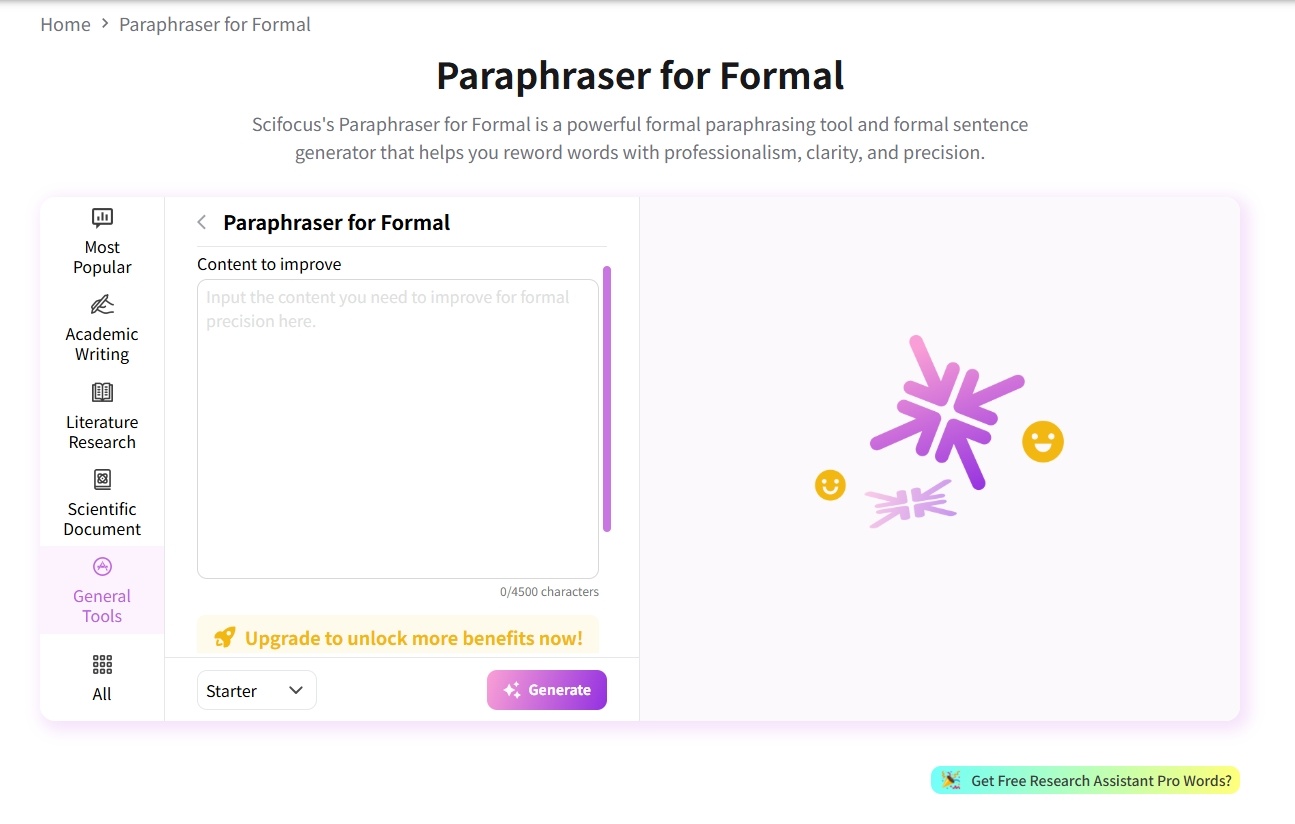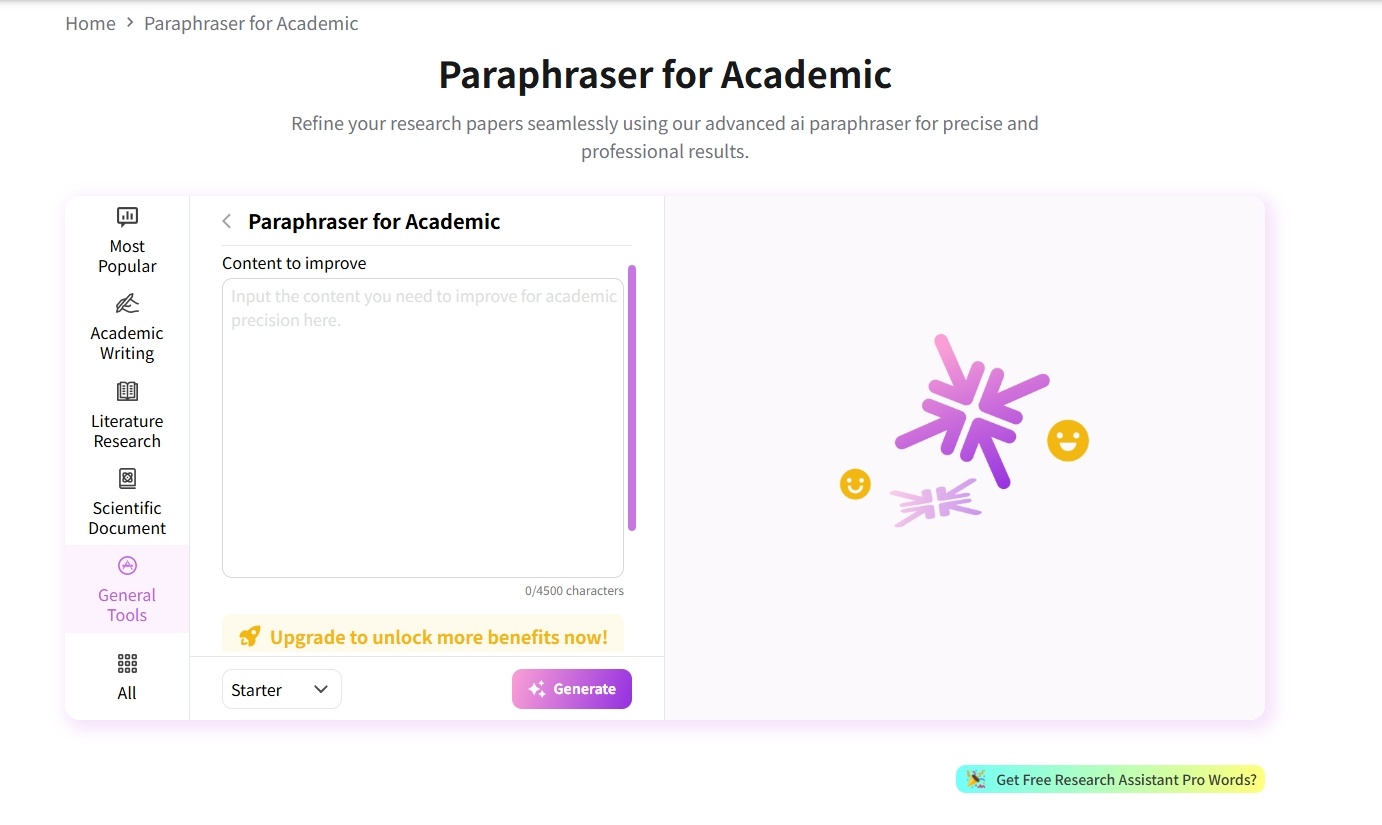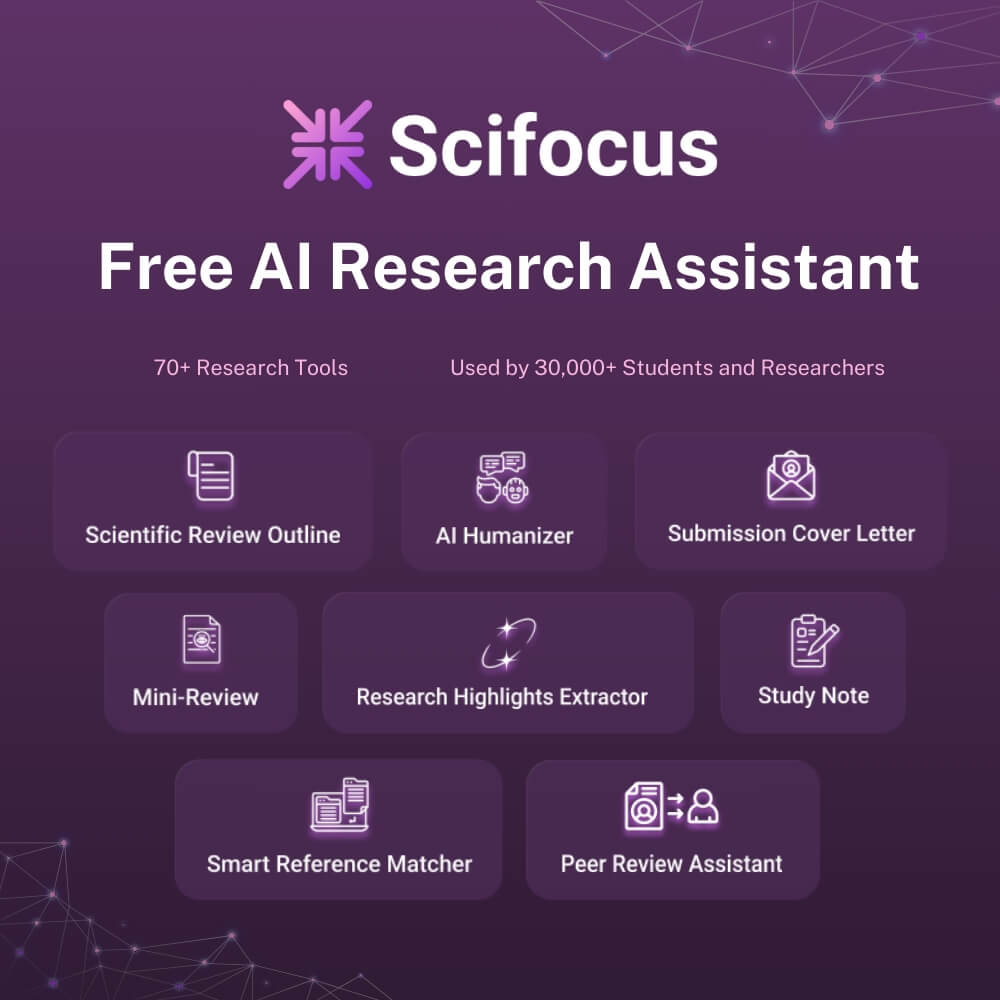10 Best AI Paraphrasers for Academic Writing in 2025
You know that frustrating moment when your academic draft feels repetitive, clunky, or just too formal? Whether you’re polishing a research paper, thesis chapter, or journal submission, AI paraphrasers are stepping up to help—rewriting your text so it’s clear, precise, and original without sounding mechanical.
If you’ve been wondering which AI paraphraser is the best for academic writing in 2025, this guide is for you. Below are 10 top tools that excel in rephrasing academic content—and spoiler alert: SciFocus AI Paraphraser is leading the pack.
Before we dive in, here’s the quick overview:
- SciFocus AI Paraphraser – Best for academic rewriting with citation safety. Free trial available.
- QuillBot – Popular with students, multiple rewrite modes.
- Grammarly – Enhances clarity and tone for formal writing.
- Wordtune – Fast, flexible sentence-level rephrasing.
- Jasper AI – Good for academic-style summaries and blogs.
- INK Editor – SEO-friendly paraphrasing for research dissemination.
- WriteSonic – Quick formal tone rewrites.
- Paraphraser.io – Free and simple tool for basic needs.
- Trinka AI – Academic grammar and vocabulary specialist.
- Scribbr Paraphraser – Research-focused rewriter with citation integrity.
TOP1: SciFocus AI Paraphraser
AI Paraphraser for Academic & Formal Writing
When accuracy and tone matter, SciFocus[/] offers two specialized tools to handle different writing needs:

- Paraphraser for Formal – A powerful formal paraphrasing tool and sentence generator that helps you reword content with professionalism, clarity, and precision. Perfect for business, academic correspondence, or any text that needs to sound polished and authoritative.

- Paraphraser for Academic – Designed for researchers and students, this advanced AI paraphraser refines research papers, theses, and journal articles for precise, professional results while maintaining citation integrity and technical accuracy.
Pros:
- Two dedicated modes: Formal tone & Academic precision
- High-accuracy rewriting that preserves meaning and citations
- Maintains technical vocabulary and logical flow
- Simple interface with a generous free trial
Cons:
- Premium required for full document rewriting
- Less suited for casual or creative writing
Whether you're preparing a business report or polishing a journal submission, SciFocus has you covered. Try both tools free at scifocus.
2. QuillBot
QuillBot is a trusted choice for students thanks to its multiple paraphrasing modes like Standard, Fluency, and Formal. It’s excellent for essays, short research tasks, or quick clean-ups.
Pros:
- Flexible rewriting styles
- Fast and browser-based
- Free tier available
Cons:
- Occasional generic wording
- Premium needed for long inputs and advanced features
3. Grammarly
More than just a grammar checker, Grammarly refines tone, clarity, and flow, making paraphrased text read more naturally. It’s not a full rewriter but great for polishing academic drafts.
Pros:
- World-class grammar and style corrections
- Tone detection helps keep writing formal
- Works on all major platforms
Cons:
- Doesn’t fully rewrite text
- Premium needed for deep tone control
4. Wordtune
Perfect for real-time rewriting, Wordtune provides instant sentence-level paraphrasing with tone controls—great for tweaking thesis sections or emails.
Pros:
- Instant paraphrasing options
- Multiple tones (formal, concise, casual)
- Free daily use
Cons:
- Limited deep context understanding
- Full access requires premium
5. Jasper AI
Though built for marketing, Jasper AI’s long-form assistant works well for generating structured, academic-style content and summaries.
Pros:
- Context-aware rewriting
- Clean templates for different content types
- Intuitive interface
Cons:
- Higher pricing than student tools
- May add too much creative flair for strict academic texts
6. INK Editor
Combining SEO and paraphrasing, INK Editor is great for academics sharing research on blogs or public websites. It balances readability with keyword strategy.
Pros:
- SEO + readability in one tool
- Maintains natural flow while optimizing keywords
- Free tier available
Cons:
- Learning curve for SEO features
- Less specialized for strict academic writing
7. WriteSonic
With formal tone presets, WriteSonic makes paraphrasing fast and adaptable for short academic pieces or correspondence.
Pros:
- Quick rephrasing options
- Multiple writing tones
- Free trial available
Cons:
- Output can be generic
- Not as accurate with technical language
8. Paraphraser.io
If you need something free and simple, Paraphraser.io gets the job done for basic rewrites, though you may need to edit for style.
Pros:
- 100% free basic paraphrasing
- No sign-up required
- User-friendly interface
Cons:
- Limited academic vocabulary
- Output can feel mechanical
9. Trinka AI
Designed for researchers, Trinka AI focuses on grammar, style, and terminology corrections specific to academic publishing.
Pros:
- Specialized for academic writing
- Improves technical language
- Maintains scholarly tone
Cons:
- Narrow use case outside academia
- Premium required for full features
10. Scribbr Paraphraser
Scribbr offers research-focused paraphrasing ideal for essays and journal papers, ensuring meaning and citations stay intact.
Pros:
- Citation-friendly rewriting
- Great for research papers
- Clear, student-friendly interface
Cons:
- Limited free usage
- Slower than lightweight rewriters
Why SciFocus AI Paraphraser Stands Out
Most AI paraphrasers simply shuffle words or rearrange sentences. That might work for casual writing, but academic content demands precision, clarity, and integrity. This is where SciFocus AI Paraphraser shines above the rest.
Unlike generic tools that risk altering meaning or oversimplifying complex ideas, SciFocus is designed specifically for scholarly writing. It doesn’t just rephrase—it understands the context of technical terms, research methodology, and citation standards. Whether you’re revising a dense literature review or polishing a journal article, SciFocus ensures your arguments remain accurate, coherent, and formally expressed.
Another major advantage is its advanced contextual intelligence. Instead of treating sentences in isolation, SciFocus looks at the broader paragraph to maintain logical flow. This is critical for ensuring smooth transitions in academic papers where precision matters as much as readability.
SciFocus also benefits from continuous learning. By integrating feedback from students, professors, and researchers, it constantly evolves to stay aligned with academic writing conventions and cultural nuances in global scholarship.
In short: SciFocus doesn’t just make your text different—it makes it better. It helps you sound professional without sounding robotic, and formal without losing your personal voice as a researcher. If you’ve ever struggled to make paraphrased text feel natural, accurate, and plagiarism-safe, this tool feels less like software and more like a trusted academic editor.
Try it yourself at scifocus and see how it transforms even dense journal paragraphs.
What is SciFocus AI Paraphraser used for?
SciFocus AI Paraphraser is designed to rewrite sentences, paragraphs, or full documents while preserving meaning and clarity. It offers two modes: Paraphraser for Formal (for professional tone) and Paraphraser for Academic (for precise research writing).
How is Scifocus different from other paraphrasing tools?
Unlike generic tools that simply swap words, SciFocus understands academic and formal context, maintains technical terms, and ensures citation safety. It’s built for students, researchers, and professionals who need high-accuracy rewriting.
Can I use SciFocus AI Paraphraser for free?
Yes. SciFocus provides a generous free trial so you can test both Formal and Academic paraphrasers before upgrading to the premium version for full document rewriting.
Does SciFocus AI Paraphraser avoid plagiarism?
Yes. By rephrasing content with contextual accuracy instead of word-for-word replacement, SciFocus helps you produce original, plagiarism-safe text suitable for academic and professional work.
Which should I choose: Paraphraser for Formal or Academic?
- Use Paraphraser for Formal for business writing, reports, professional emails, and any content that needs a polished tone.
- Use Paraphraser for Academic for research papers, theses, journal submissions, and scholarly articles requiring technical precision.
Did you like this article? Explore a few more related posts.
Start Your Research Journey With Scifocus Today
Create your free Scifocus account today and take your research to the next level. Experience the difference firsthand—your journey to academic excellence starts here.
